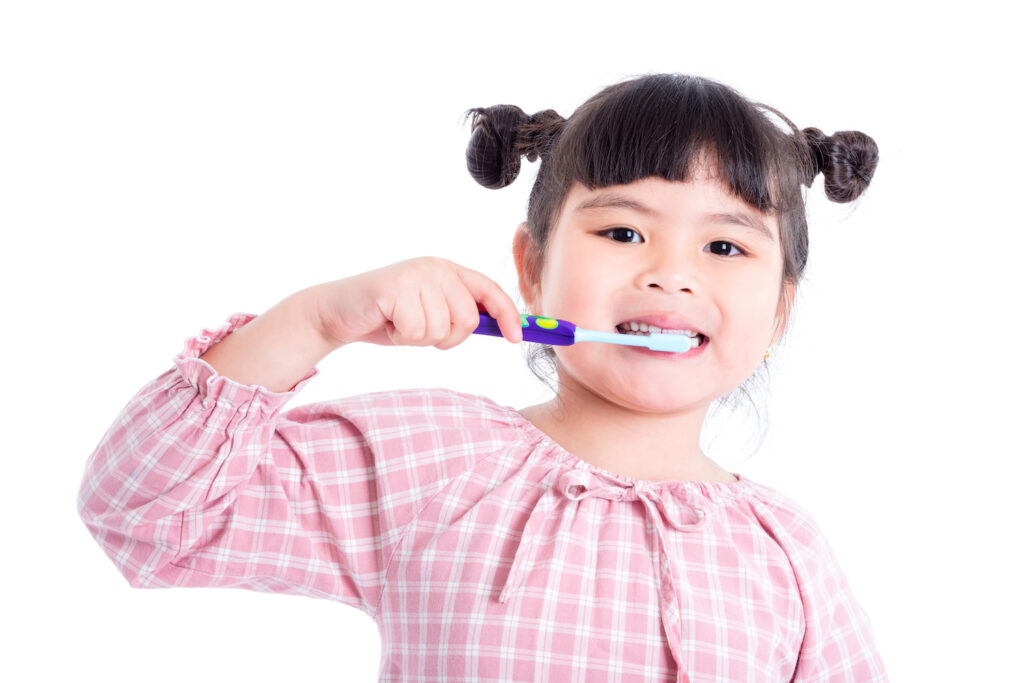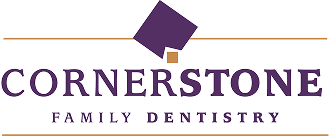Dental Care for Children – Infancy to 8 years of age
BY Cornerstone family dental

Beginning dental care early is important for your child’s health and for the health of future teeth. It will also help to establish dental care routines. As your child gets older, they will handle their own dental care but before that happens adults are responsible. Here are some tips to protect your child’s gums and teeth.
- Even before baby teeth come in it is important to clean your baby’s gums. You can do this with a clean damp cloth.
- When your child’s first tooth appears, start brushing with a small, soft-bristled toothbrush and a tiny bit of fluoride toothpaste (think the size of a grain of rice.)
- Besides building the habit of brushing it is important to also build the habit of flossing. Flossing can start as soon as a child has two teeth that touch. When the child is 7 or 8 years old, they can begin flossing on their own. It is recommended however they do so under adult supervision as young children are apt to rush through the flossing and miss a few spots.
- After the age of 3 continue brushing your child’s teeth with a small soft-bristled brush but use a pea-sized amount of fluoridated toothpaste. At this age, the child is old enough to spit out the toothpaste after brushing.
- Help your child brush his or her own teeth until age 7 or 8. Model the correct way to brush teeth and have your child watch and then follow the same brushing pattern. Your dental hygienist or dentist will also review the most effective teeth brushing technique with your child at dental appointments.
- To help prevent baby bottle tooth decay, do not give your child a bottle with milk, juice, or sweetened liquid at bedtime or naptime. Also, limit the time your child has with a bottle. Children can empty a bottle in 5 – 6 minutes or less.
- Between feedings, offer water to drink. Water is the best choice for quenching thirst and is superior to fruit juices that include excessive amounts of sugar.
- It is fine to give a pacifier to your baby up to a certain point. But, do ensure to inspect the nipple often, keep it clean and throw the soother out if the nipple becomes cracked or torn. If a soother is used by a child 12 – 24 months old try to limit usage until naptime and bedtime. Once a child has all their baby teeth (about 3 years old) pacifiers are not recommended.
- The Canadian Dental Association recommends you take your child for their first dental appointment within 6 months of their first tooth coming in or by 12 months of age.
- After the first dental appointment, children should see the dentist every 6 months.
- If your child is resistant to brushing their teeth offer him or her a fun brush with a favorite character and bright color. Brush your teeth alongside your child so they can see you take good care of your teeth and learns that it is a lifelong habit. Singing a song and making a game out of the routine can also help.
- Ingesting large amounts of sugar daily is not good for one’s health and will lead to tooth decay. As your child ages, limit foods and treats that contain high amounts of sugar. For example, hard or sticky candies, fruit leather and sweetened drinks of juice. Instead of juice offer your child the fruit instead. The fibre in fruit can scrape teeth clean while juice just exposes teeth to sugar.
Sources:http://www.cda-adc.ca/en/oral_health/cfyt/dental_care_children/cleaning.asphttps://www.urmc.rochester.edu/encyclopedia/content.aspx?contenttypeid=1&contentid=1509https://www.healthlinkbc.ca/healthlinkbc-files/dental-care-infant-toddlerhttps://kidshealth.org/en/parents/start-brushing-teeth.html

.png)